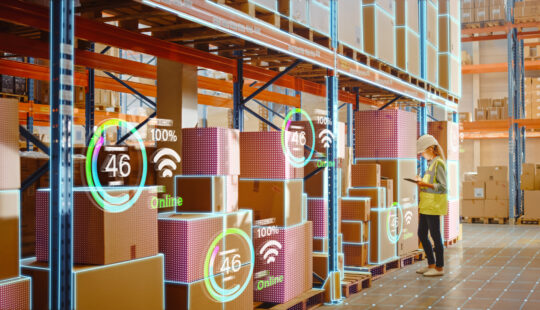India’s digital landscape is evolving at an unprecedented pace, fuelled by rapid internet adoption and strong economic growth, positioning the country as a global leader in innovation. From generative artificial intelligence (Gen AI) adoption to sustainability drive, the coming year will accelerate India’s trajectory as a global powerhouse. Building on this momentum, let’s look at key technology trends that will redefine business resilience, customer experience, and sustainable growth:
- India’s rise in the global supply chain: The supply chain and logistics sectors stand at an inflection point and is poised for exponential growth. This growth is driven by factors ranging from rising disposable incomes, government initiatives like “Make in India,” and the rise of emerging technologies.
- AI will be the foundation for supply chain resilience: In the coming year, the country will accelerate building autonomous, AI-enabled supply chains to enhance operational efficiency and responsiveness. As companies navigate more complex supply chains, AI-enabled programs will be essential for them to stay competitive and efficiently address issues as they happen. Organizations will use cutting-edge AI capabilities along with additional tools like digital twins to monitor asset wear and tear, enhance lead-time predictions, and investigate production problems more quickly. Businesses will be able to produce quantifiable business results even when disruption seems like a normal part of life if AI is integrated, relevant, and accountable.
- Anti-fragile supply chains will become the new normal: ‘Anti-fragile’ supply chains will be the defacto standard, as Indian businesses strive to future-proof their supply chains from incoming disruptions. Using data-driven technologies such as analytics and machine learning, organizations will be able to better predict risks, enhance business resilience, and optimize operations. For a diverse manufacturing ecosystem with a growing export potential such as India, anti-fragile supply chains will not only be a necessity but a strategic advantage enabling industries to stay competitive in increasingly dynamic market conditions.
- India’s rise as the data powerhouse: India is rapidly transforming from an emerging market to a developed economy and digital technology with all its data sits at the center of this evolution. The government’s focus on fostering secure data privacy environment is an impetus to fostering conducive business climate and stakeholder confidence.
- Establishing trust in data will become the top priority for leaders. In the AI era, data will be the cornerstone of resilience and creativity. Businesses will continue to find it difficult to employ emerging technologies like artificial intelligence (AI) or make well-informed decisions if they lack confidence in the data they possess and use. It will take more than just technology to establish this trust; leaders must increase data literacy and adopt a data strategy that prioritizes quality and capacity.
- A data fabric will become accepted as a pre-cursor to using AI at scale: Making sure AI is reliable, accountable, and pertinent is still a major concern as companies use it more and more to spur innovation. AI systems must be trained on actual, business-specific data rather than artificial or generic data to produce precise, useful insights. A growing number of enterprises will employ a data fabric as their data strategy to make this a reality because it offers the deep business context and semantics needed for AI to be applied in actual business applications.
- AI will become a critical component of customer experience: In 2025, AI will be at the heart of all customer experiences, helping businesses understand and connect with their customers like never before. Companies will use AI to deliver hyper-personalized interactions, seamless automation, and predictive insights, making every interaction thoughtful, instant, and meaningful. From intelligent copilots handling complex inquiries to sentiment analysis enhancing emotional connections, AI will help businesses customize models for unique operational needs, and drive flexibility, competitive advantage, and innovation at scale, creating customer experiences that not only meet but exceed expectations.
- With potential policy changes on the horizon, leaders must prioritize transparency to reduce risk and boost sustainability: In 2025, we will see companies focusing on their ‘green lines’ — measuring environmental impact —alongside the traditional top and bottom lines of revenue. Enhanced connectivity with everyone and everything in your ecosystem will increase transparency and traceability in supply chains. Leaders will prioritize visibility and transparency to gain real-time insights, enabling them to monitor operations and safeguard against unethical practices. As the coming year brings a shift in policy and governance priorities, technology solutions can help businesses track their compliance with constantly changing regulations to back up their sustainability claims. For instance, India is likely to see increased emphasis on local sourcing and production, prompting businesses to refine their tracking of materials at every stage, ensuring accountability and fostering sustainable practices throughout the supply chain. Enhanced visibility will also help manage risks and improve collaboration among supply chain partners.
By 2025, India will cement its position as a global economic powerhouse, driving innovation through AI and resilient supply chains. As we keep our focus on cutting-edge technologies, data trust, and sustainability, India is set to create a competitive edge in an increasingly interconnected global marketplace. These trends will enable India to rise as a global leader, poised for exponential growth in the digital era.
- The author is Manish Prasad, President and Managing Director, SAP Indian Subcontinent.



